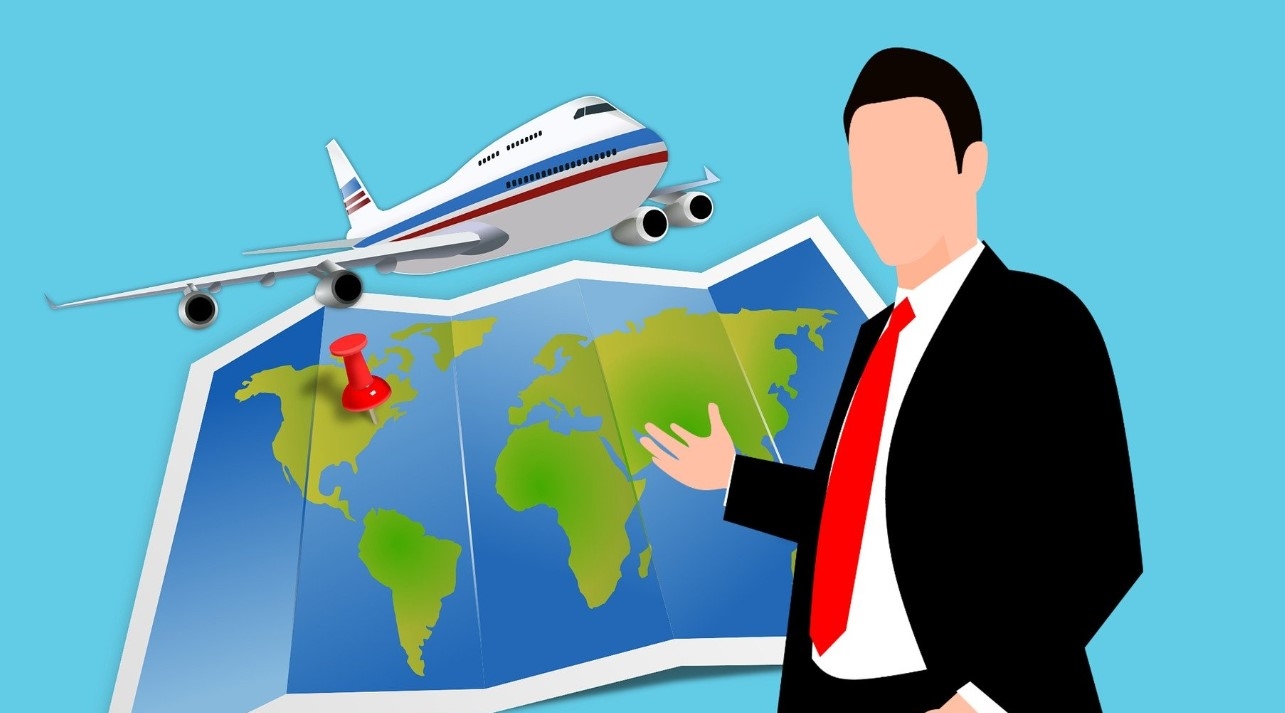How AI and Technology Are Changing the Role of Travel Agents

The travel industry has undergone a significant transformation with the rise of artificial intelligence (AI) and advanced technology. While traditional travel agents once relied on personal experience and manual research to plan trips, today’s landscape is driven by automation, data analytics, and AI-powered tools. This shift is reshaping the way travel professionals operate, offering them new opportunities and challenges.
AI-Powered Personalization in Travel Planning
One of the biggest advantages AI brings to travel agents is its ability to offer hyper-personalized experiences. AI-driven algorithms analyze travelers' past bookings, preferences, and search history to provide tailored recommendations. With platforms like chatbots and virtual assistants, customers can receive instant responses to their queries, reducing wait times and improving overall customer satisfaction.
Additionally, AI enables agents to predict travel trends based on real-time data, allowing them to offer the best deals and destinations to clients. This level of personalization ensures that travel agents remain valuable in an era where self-booking platforms like Expedia and Skyscanner dominate the market. To keep up with these changes, professionals can enhance their skills throug Travel Agent Training, which equips them with the necessary knowledge to leverage AI-driven tools effectively.
Automated Booking and Cost Optimization
Gone are the days when travel agents had to manually compare flight prices and hotel rates. AI-based booking systems now streamline the process by instantly scanning multiple databases to find the best deals. Machine learning algorithms adjust pricing dynamically, ensuring travelers receive competitive rates.
Moreover, automation reduces errors, such as duplicate bookings or incorrect dates, improving the efficiency and reliability of travel agencies. By integrating AI-powered tools, travel agents can focus more on curating unique experiences rather than spending hours on administrative tasks.
AI Chatbots and Virtual Assistants for Customer Support
Customer service is at the core of the travel industry, and AI-driven chatbots are enhancing this aspect significantly. These virtual assistants provide 24/7 support, helping travelers with flight information, visa requirements, and itinerary changes without human intervention.
For travel agents, this technology reduces workload while ensuring that clients receive instant assistance. AI-powered chatbots can handle multiple requests simultaneously, making them an invaluable asset for businesses looking to improve response times and efficiency. However, human interaction remains essential for handling complex travel issues, so striking the right balance between AI automation and personal service is crucial.
Predictive Analytics for Travel Trends
The ability to predict travel trends has always been an essential skill for travel agents. With AI-driven predictive analytics, agencies can now anticipate demand fluctuations, peak travel periods, and even potential disruptions like weather changes or airline strikes.
By utilizing historical data and machine learning, travel agents can offer clients informed recommendations, ensuring they book at the optimal time. This level of insight enhances customer trust and helps agents stay ahead of market trends, making them indispensable despite the rise of self-service booking platforms. Professionals seeking to stay competitive in this evolving industry can benefit from Travel Agent Training, which provides essential skills for navigating these technological advancements.
The Rise of Blockchain in Travel Transactions
Blockchain technology is another revolutionary advancement impacting the travel industry. It enhances security, transparency, and efficiency in transactions, making payment processes more reliable for both clients and travel agencies.
With blockchain, travelers can book flights, hotels, and car rentals with minimal risk of fraud. Smart contracts automate transactions, reducing processing times and eliminating the need for intermediaries. As blockchain adoption grows, travel agents who familiarize themselves with this technology will have a competitive edge in the market.
Virtual Reality (VR) and Augmented Reality (AR) in Travel Planning
The use of virtual and augmented reality is transforming how travelers choose destinations. Travel agencies now offer VR tours of hotels, resorts, and attractions, allowing clients to experience a location before booking.
AR-powered apps also enhance the travel experience by providing real-time information about landmarks and tourist spots. These immersive technologies help travel agents offer better recommendations, ensuring their clients make informed decisions. Adapting to these innovations is essential for travel professionals who want to remain relevant in an increasingly tech-driven industry.
Conclusion
AI and technology are redefining the role of travel agents, making their work more efficient, accurate, and customer-focused. From AI-powered personalization to blockchain security, these advancements ensure that travel professionals can offer high-value services despite growing competition from online booking platforms. To thrive in this new landscape, agents must stay ahead of technological trends by continuously upgrading their skills. Investing in Travel Agent Training is a strategic step towards mastering these innovations and maintaining a competitive edge in the evolving travel industry.
- Questions and Answers
- Opinion
- Motivational and Inspiring Story
- Technology
- Live and Let live
- Focus
- Geopolitics
- Military-Arms/Equipment
- الحماية
- Economy
- Beasts of Nations
- Machine Tools-The “Mother Industry”
- Art
- Causes
- Crafts
- Dance
- Drinks
- Film/Movie
- Fitness
- Food
- الألعاب
- Gardening
- Health
- الرئيسية
- Literature
- Music
- Networking
- أخرى
- Party
- Religion
- Shopping
- Sports
- Theater
- Health and Wellness
- News
- Culture

